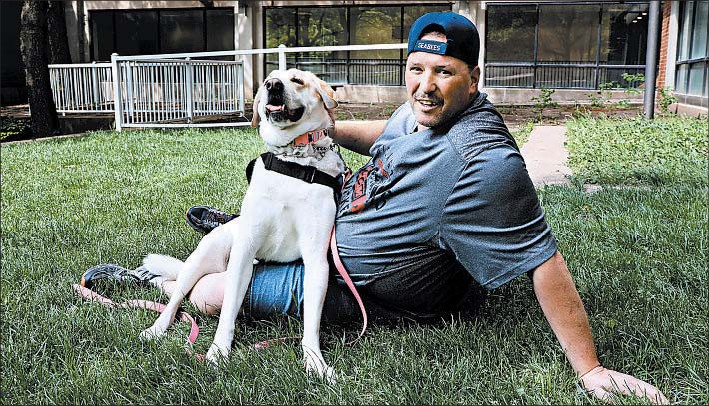
Antonio Perez/Chicago Tribune Photos
Many vets returning from combat have difficulties coping with what they experienced. Unfortunately, there is still a great deal of shame associated with seeking mental health services in the military. This prevents numerous vets from seeking the help they need leading to untold suffering and poor quality of life. This is especially troubling given that we have a new generation of combat vets, the first to be engaged in a long-term conflict since the end of the Vietnam War in 1975, who may be silently hurting.
With the end of Iraq war, our veterans returned to an appreciative country, and while they may have survived physically, they may not have fully done so psychologically. For some of these vets, reconnecting with their small children may be a problem since in Iraq if they saw a mother and child their first thought involved whether she was carrying explosives. Some may be experiencing survivor guilt, unable to understand why others were killed and not them, or anger at what they had been forced to do. Some vets can’t reconnect to friends since they saw too many peers killed and don’t want to experience the pain of losing someone else they care about. Some can’t reconnect to anyone because they feel that while others may care, none of them can know or relate o what they encountered during the war. For many of these, such problems are just one part of a much larger picture.
Of those vets who fought in Operation Enduring Freedom or Operation Iraqi Freedom, it has been estimated that 25 percent are suffering from PTSD. This has also been said to be a gross underestimate, as it’s recognized that numerous vets who experience mental health problems do not seek help. Even many of those diagnosed with PTSD do not follow through on recommended treatment. In fact, it has been determined that as many as 60 percent of those identified as suffering from PTSD do not begin recommended therapy or drop out soon after beginning therapy. This amounts to a huge number of our vets who are in pain and not getting the help they need.
K-9 for Veteran Warriors, a Chicago based organization, recognizes that many vets with mental health difficulties don’t pursue therapy or feel that it doesn’t always help with all the problems soon enough to prevent premature termination. They have begun a program which matches specially trained dogs they get from no kill shelters with veterans suffering from PTSD. The program takes into account the vets lifestyle including whether they live in an apartment or house, in town or a rural area how active they are.
The dogs are selected in part because a calm and eager to learn temperament. They are also chosen because they show evidence of empathy. These amazing animals actually sense when the vet is beginning to experiencing anxiety and do things to help decrease it. One vet who has been matched with one of these animals, an Iraqi war veteran who served in the Navy for 7 years before joining the Illinois National Guard which was deployed to Iraq, says the dog he was given has changed his life.
When he talks about his war experiences in group therapy, the dog stands protectively nearby. He says that she also prevents him from self-isolating since he has to walk her and that she has made it possible for him to go into crowded places again when she is with him. When feeling the stress of heavy traffic the dog puts her head on his shoulder. His wife is also thankful to the dog for helping her husband begin taking care of himself as the result of the responsibility of taking care of her needs. “We’ve got an adorable little blonde at home that I don’t have to worry about,” his wife said.
The vet also credits the free three week intensive program at the Center for Veterans and Their Families at Rush University Medical Center in Chicago, with helping decrease his problems related to the war. But he added that nothing helped more that the energetic golden retriever/mastiff mix with whom he was gifted.
Those interested in these programs can find out more through the links below.
K-9 for Veteran Warriors - The mission of the program is to place service dogs to help veterans cope with PTSD so they can live happy and productive lives after their military career ends. They also provide free food and medical care for the life of the dog.
The Road Home Program, Rush Medical University - The Intensive Outpatient Program (IOP) is a full-spectrum, three-week treatment program that connects veterans to individualized care for trauma-based disorders and injury. The program is open to all veterans of any era. Veterans need not live in Chicago to apply. Food, lodging and travel expenses for veterans and one family member or significant other will be provided. In some circumstances, the program may be able to help cover other expenses incurred during the three week stay.

